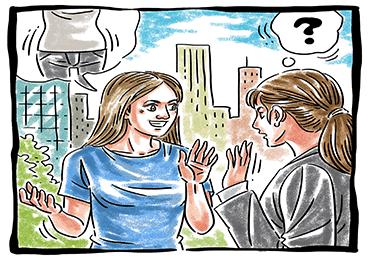et me start with a little flex. Recently I lost 10 kilos and the difference is drastically good, if I dare say so myself. But my sudden slim down is also what led me to remember this odd cultural revelation that I noticed years ago but had come to forget.
I started hearing a lot of people tell me things like “Wow you lost a lot of weight!” which is pretty normal. But what was less normal for an American is stuff like “You’ve lost weight, you look so tired.”
After hearing that on more than a handful of occasions from friends and acquaintances, I remembered something. About 10 years ago I first picked up on how common it is for locals to use backhanded compliments as a way of showing concern, I started trying it out for myself. Stuff like “You look so tired” which is meant to mean “I care about your well-being” and “You’ve gained weight” which is meant to mean “looks like you’re doing well” were added to my vocabulary when I greeted my local friends and colleagues. I remember genuinely waiting for someone to call me out on my social experiment for being rude, but what do you know, it never happened. I remember vividly now that on one occasion after I told an acquaintance “the color in your face doesn’t look good” but actually means you’re looking tired and not well rested, she actually thanked me for showing concern. It was all very confusing…
Newbies coming to China for the first time learn “ni hao” to say hello, but I bet you won’t find a textbook that’ll teach you to say “Hey, you look like shit” as a way to say hello.
In the US, we’re literally taught not to comment on people’s appearance as that may come across as rude and insensitive. But here, it’s different. While these comments might be seen as rude or intrusive in many Western cultures, in China, they are often intended as expressions of concern or familiarity rather than criticism.
Understanding the cultural context is key to interpreting these remarks. In China, direct comments about one’s appearance are a common way to show care and interest. When someone says, “You look tired,” they are often expressing concern for your well-being, suggesting that you might need more rest. Similarly, a comment like “You’ve gotten fat” is not necessarily a judgment about your appearance but is culturally rooted in olden times when having a bit of extra body fat was a symbol of wealth and prosperity. Seriously, it was a flex to be chubby!
Greeting people with these borderline insensitive comments is also a way to reinforce social bonds. Friends and family feel comfortable pointing out changes in appearance because it signifies a level of intimacy and concern for one’s well-being.
This directness can be surprising to foreigners, but it reflects a cultural emphasis on honesty and closeness in personal relationships. By addressing what they see, people believe they are acknowledging reality and showing that they notice and care about the other person’s life and health.
In contrast, in the West, remarks about someone’s weight or how tired they look are often considered impolite, hurtful, or in a work setting, the basis for a potential harassment lawsuit. The emphasis is on making the other person feel good about themselves, which can lead to more superficial or indirect comments. This difference in communication styles can lead to misunderstandings when people from these different cultural backgrounds interact.
For foreigners in China, understanding these cultural nuances can help navigate social interactions more smoothly. Recognizing that such comments are meant to show concern can help mitigate any initial feelings of offense. Responding with a smile and a simple explanation, such as “Yes, I’ve been working hard lately,” can acknowledge the concern and move the conversation in a direction that you’re comfortable and not confused by.
Cultural differences in communication styles can sometimes lead to misunderstandings, but they also provide an opportunity for greater cross-cultural understanding. By recognizing and respecting these cultural norms, we can foster more meaningful and respectful interactions across cultural boundaries. Embracing these differences enriches our global interactions and helps us appreciate the diverse ways in which people express care and concern for one another. Or, embrace your cultural curiosity and try dishing out some of these awkward greetings yourself and see what reactions you get.

 Old Version
Old Version